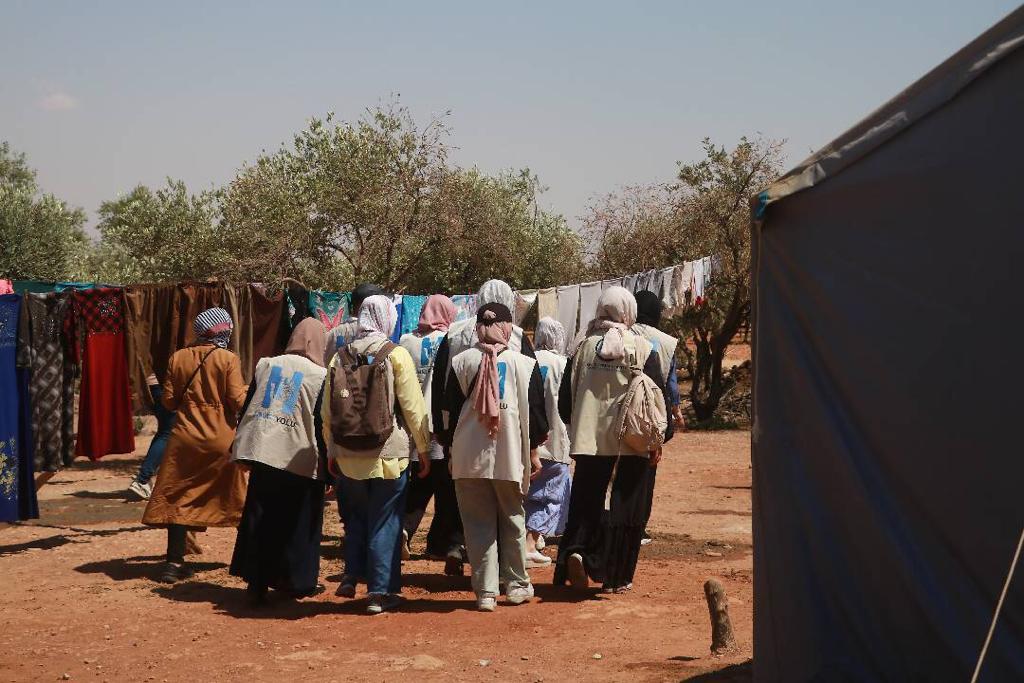For 11 years, Syrians have been suffering from the scourge of war, destruction and displacement so 50% of them have become refugees.
More than 5 million of them have taken a safe haven from the regime’s strikes, bombing and killing in North Syria, despite the fact that we see it as a safe haven, it does not provide them with decent conditions of life, it does not even provide the basics of life. They live in tents that do not protect them from the heat of summer or the cold of winter, and where there is no bedding except for some worn-out rags. Thus, the children of the camps grow up in a tragic condition, and their women and the elderly subsist on patience and waiting for relief.
This is in fact what we saw with our own eyes in the camp.
Hayat Yolu in camp
During our visit to the camp, we were eyewitnesses to what we read and heard about them, but we never expected it to be that bitter. No matter how much the human mind is, it cannot comprehend that people live in temperatures of 40 degrees in a worn-out tent and on a semi-desert land, so that every moment of their day would be a continuous torment without any means of shelter. They, as I said, take refuge by patience and hope.
On the day of our visit to the camp, the youngsters ran through the harsh dusty alleys of the camp barefoot in their torn clothes, as if they were running from the whips of the sun that whipped them, but where to escape.
They are beautiful with strong features that were polished by the camp’s hand. It is strange that their suffering with the camp did not extinguish the glint of eyes. As soon as we saw them, the faces cheered. They were waiting for us, and they knew that we were carrying some joy with us.
We became children in the camp
As soon as you see them you become a child, you find yourself taking them on your lap and kissing little hands and fingers, you want to cry, but you don’t cry, you laugh, pat the dusty hair and kiss the patient hands of old women.
We carried some gifts and snacks for the children, which they saw as much as we saw their joy in it. We distributed gifts to them, then left them jogging, rejoicing at the prizes they received, we wished that what we carried was worth all this joy. I realized then that their joy was not due to the small gift. The secret of joy was their thinking that there are still people who remember them and that they are not alone.
In fact, it is not only that we remember them, but we never forget them.



